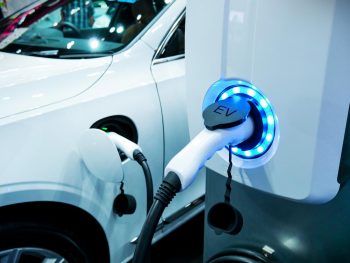Global electric car sales rocket 41% in 2020 but critical progress required
The electric car market bucked the downturn in global auto sales in 2020 with growth of 41% and is on track for a “decade of strong expansion”.

The IEA projects the global EV fleet will reach 145 million by 2030, but it says it could hit 230 million if governments accelerate efforts to reach international climate and energy goals
But the findings, revealed in a new report by the International Energy Agency, say that critical progress is needed to ensure EVs attain their full potential to mitigate carbon emissions.
The IEA’s Global Electric Vehicle Outlook 2021 finds that despite a series of pandemic-induced economic recessions, a record three million new electric cars were registered in 2020; a 41% increase from the previous year. By comparison, the global automobile market contracted 16% in 2020.
And in the first quarter of 2021, EV sales reached nearly two and half times their level in the same period a year earlier.
Governments helped EVs mitigate the downturn by extending existing policy and fiscal support, and augmenting them with stimulus measures in response to the Covid-19 crisis.
Last year’s increase brought the number of electric cars on the world’s roads to more than 10 million, with another roughly one million electric vans, heavy trucks and buses.
And for the first time last year, Europe overtook China as the centre of the global electric car market. Electric car registrations in Europe more than doubled to 1.4 million, while in China they increased 9% to 1.2 million.
Based on current trends and policies, the IEA projects the number of electric cars, vans, heavy trucks and buses on the road worldwide to reach 145 million by 2030.
But it says the global fleet could reach 230 million if governments accelerate efforts to reach international climate and energy goals, as outlined in the IEA’s Sustainable Development Scenario.
The report outlines that in order for electric vehicles to attain their full potential to mitigate carbon emissions, critical progress is required to decarbonise electricity generation, to integrate electric vehicles in power systems, to build charging infrastructure and to advance sustainable battery manufacturing and their recycling.
“Electric vehicles have an indispensable role to play in reaching net-zero emissions worldwide,’” said Fatih Birol, executive director of the IEA. “Current sales trends are very encouraging, but our shared climate and energy goals call for even faster market uptake. Governments should now be doing the essential groundwork to accelerate the adoption of electric vehicles by using economic recovery packages to invest in battery manufacturing and the development of widespread and reliable charging infrastructure.”
The IEA added that while electric vehicles have a key role to play in tackling emissions, policymakers should think about global clean energy transitions holistically across sectors to ensure that progress in one area is not being undermined by shortcomings in another.
To access the report, click here.







